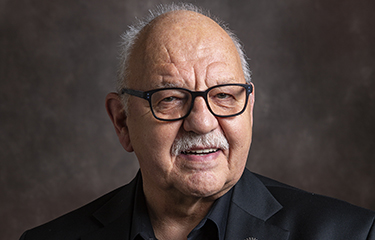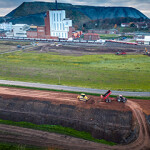Op-ed: W. Ron Allen: Farming native fish in the Salish Sea can be done safely, responsibly

W. Ron Allen is the tribal chair and CEO of the Jamestown S’Klallam Tribe of Sequim, Washington, U.S.A.
As chairman and CEO of the Jamestown S’Klallam Tribe, I must correct the record about the environmental viability and respectful use of fish farming in the Salish Sea. Socrates said, “It is better to change an opinion than persist in a wrong one.” We are at a moment in human history when fact and science must shape our opinions on how we sustain humanity while fighting the climate crisis that threatens our very existence. Science tells us ocean farming of native fish is the most environmentally sustainable solution available to produce food for our world.
Multiple peer-reviewed studies have shown the ecological safety of farming native fish. In 2022, NOAA released a biological opinion showing that net-pen aquaculture has little to no negative impact on endangered species in Puget Sound.
Advancements in technology allow aquaculture to be practiced sustainably; computerized feeding systems have virtually eliminated feed waste. State-of-the-art farms utilize sophisticated sensors and high-resolution cameras to provide comprehensive environmental monitoring of oxygen, temperature, tidal currents, plankton, and sedimentation. And despite fictitious claims to the contrary, fish farms act like floating reefs; areas once barren become teeming with abundant aquatic life.
Our Tribe strongly believes we must look at the real threats endangering our native trout and salmon populations, and fish farms are not to blame. Northwest Tribes struggle to sustain the ability to harvest wild fish for livelihood, sustenance, and ceremony. Through the implementation of modern sustainable fish-farming practices, we can produce locally grown seafood, sustain seafood jobs, feed our families, and uphold our Tribal traditions, without further depleting wild stocks.
Among the biggest threats to wild salmon are rapidly rising temperatures from greenhouse gases fueling our climate crisis. Yet, we continue to import 85 percent of seafood consumed in the US, instead of sustainably raising fish here at home. Washington consumers cannot buy locally farmed fish, but can purchase fresh farmed steelhead flown over 4,500 miles from Norway; an unnecessary carbon impact.
In addition, modern aquaculture is the most environmentally friendly method of producing protein, offering the lowest possible feed-conversion-ratio and energy consumption, producing far fewer greenhouse gas emissions than land-based protein agriculture.
Some claim unilateral Tribal opposition to aquaculture in Washington waters, but that is not true. Several Washington Tribes already grow fish in Puget Sound and on the Columbia River, and some Tribes run early-release fish net pens. The Jamestown S’Klallam Tribe prides itself on our countless achievements protecting and sustaining our environment and salmon habitat, and we firmly believe that native species fish farming is our 21st-century opportunity to continue providing for our community while respecting and protecting our Salish Sea. We believe people deserve facts about how aquaculture – the breeding, rearing, and harvesting of fish, shellfish, algae, and other organisms in all types of water environments – helps sustainably feed the planet and can provide living wage jobs in economically struggling Tribal and rural coastal areas.
Socrates learned a thing or two about those who refuse to embrace truth. He was charged, convicted, and put to death by poisonous hemlock for the “corruption” of teaching his pupils to see knowledge as the central tenet of a healthy society. By denying legitimate science, anti-aquaculture activists use fictitious emotional rhetoric to block sustainable solutions that could help feed the planet and reduce greenhouse gases. By refusing to respect fact and science, they may be forcing us all to drink hemlock.
Photo courtesy of Jamestown S’Klallam Tribe





Share